2006 Ferrari F430 Spider
6-Speed Manual
3,300 Original miles
Launch Specification Livery
Year
2006
Brand
Ferrari
Model Variant
F430 Spider
Current Mileage


chasis
1908
Engine capacity
exterior color
Interior color
transmisSion
Top speed
Designer
Years produced
-
Total production
More details
The Ferrari F430 was the second of the new generation Ferrari mid-engined entry level V8 Berlinettas and Spiders, supplanting the hugely successful 360 in 2004.
While retaining the overall shape of the 360 with some subtle cosmetic tweaks, notably the raised rear wheel flairs with dramatic air intakes aft the doors, the F430’s real difference was under the bonnet in its performance. Designed by Frank Stephenson at Pininfarina, there are some subtle allusions to the Ferrari flagship car of the time, the Enzo, most notably the Enzo-like tail lights and engine bonnet vents were added to help make the car appear more like its bigger brother.
The familiar large openings in the snowplow nose were also elongated and rounded off, lending to the “Sharknose” shape, an homage to the fabulously successful Ferrari 156 and 250 TR 61 racing cars made famous by American Formula One and sports car legend Phil Hill.
Despite sharing the same basic aluminum chassis of the 360, Stephenson’s 430 was a departure featuring all new roof line, doors and glass, all significantly different from the 360. And, lest anyone confuse the 430 for a 360 again, the car’s name was etched on the Testarossa’s styled driver side mirror to eliminate all confusion.
The F430’s engine features a 4.3-liter V8 petrol engine from the Ferrari/Maserati family’s type F136. The motor was the F430’s most significant departure from the 360 as Ferrari had abandoned the their long-held V8 Dino racing program descendants dating to the 1950s. This cycle came to an end with the all new 4.3 liter which produces 483BHP at 8500RPM and 343 lb ft of torque at 5,200RPM.
As the engine grew by a 20% increase in displacement, the engine weight increased by only 8.8 pounds and featured a decreased diameter for easier packaging. The connecting rods, pistons and crankshaft were all new, while the four valve cylinder heads, values, and intake trumpets were directly retained from the Formula One engine program for ideal efficiency.
The F430 has a top speed of 196MPH and accelerates from 0 to 60MPH in 3.6 seconds, just over .6 of a second quicker than the 360.
The brakes on the F430 were developed in close cooperation with Brembo and Bosch resulting in a new cast-iron alloy for the discs. The new alloy includes molybdenum which has a better heat dissipation performance. The F430 was also available with the optional carbon fiber-reinforced solidon carbide ceramic composite brake package. Ferrari claims the carbon ceramic brakes will not fade even after 300-360 laps at their test track.
The F430 featured the E-Diff, a computer-controlled limited slip active differential which varies the distribution of torque based on inputs such as steering angle and lateral acceleration.
Other notable features include the first application of Ferrari’s manetto steering wheel-mounted control knob. Drivers may select from five different settings which modify the vehicle’s ESC system, “Skyhook” electronic suspension, transmission behavior, throttle response, and E-Diff. The feature is similar to Land Rover’s “Terrain Response” system.
The F430 Spider is the convertible version based on the coupé. It was unveiled at the 2005 Geneva Motor Show, making it Ferrari’s twenty first road going convertible. The car was designed by Pininfarina with aerodynamic simulation programs used for Formula One cars.
The conversion from a closed top to an open-air convertible is a two-stage folding-action, the roof panel automatically folds away inside a space above the engine bay. The interior and performance of the Spider is identical to that of the coupé with increase in the weight and decrease in the top speed by only 3MPH.
Ferrari F430 in racing.
Naturally, the F430 served as the official Ferrari Challenge entry during the car’s run from 2005 to 2009. The cars were essentially unaltered with the exception of weight saving and safety features as per the rules of the Ferrari Challenge Series.
The F430 also starred in global sports car racing such the American Le Mans Series (ALMS), European Le Mans Series (ELMS) and the FIA GT Championship as the F430 GTC. The hugely successful F430 GTC notably won class championships in the ALMS and FIA GT as well as GT2 class wins at the 12 Hours of Sebring in 2007, 2009 and 2010, the 24 Hours of Le Mans in 2008 and 2009 and at Petite Le Mans in 2008 and 2009.
This 2006 Ferrari F430 Spider (#1908) is a four owner example,comes in attractive Grigio Silverstone (dark silver) with bespoke red leather interior with luce grigio dash, highly desirable 6-speed manual transmission, Ferrari shields and only 3,000 miles.
While retaining the overall shape of the 360 with some subtle cosmetic tweaks, notably the raised rear wheel flairs with dramatic air intakes aft the doors, the F430’s real difference was under the bonnet in its performance. Designed by Frank Stephenson at Pininfarina, there are some subtle allusions to the Ferrari flagship car of the time, the Enzo, most notably the Enzo-like tail lights and engine bonnet vents were added to help make the car appear more like its bigger brother.
The familiar large openings in the snowplow nose were also elongated and rounded off, lending to the “Sharknose” shape, an homage to the fabulously successful Ferrari 156 and 250 TR 61 racing cars made famous by American Formula One and sports car legend Phil Hill.
Despite sharing the same basic aluminum chassis of the 360, Stephenson’s 430 was a departure featuring all new roof line, doors and glass, all significantly different from the 360. And, lest anyone confuse the 430 for a 360 again, the car’s name was etched on the Testarossa’s styled driver side mirror to eliminate all confusion.
The F430’s engine features a 4.3-liter V8 petrol engine from the Ferrari/Maserati family’s type F136. The motor was the F430’s most significant departure from the 360 as Ferrari had abandoned the their long-held V8 Dino racing program descendants dating to the 1950s. This cycle came to an end with the all new 4.3 liter which produces 483BHP at 8500RPM and 343 lb ft of torque at 5,200RPM.
As the engine grew by a 20% increase in displacement, the engine weight increased by only 8.8 pounds and featured a decreased diameter for easier packaging. The connecting rods, pistons and crankshaft were all new, while the four valve cylinder heads, values, and intake trumpets were directly retained from the Formula One engine program for ideal efficiency.
The F430 has a top speed of 196MPH and accelerates from 0 to 60MPH in 3.6 seconds, just over .6 of a second quicker than the 360.
The brakes on the F430 were developed in close cooperation with Brembo and Bosch resulting in a new cast-iron alloy for the discs. The new alloy includes molybdenum which has a better heat dissipation performance. The F430 was also available with the optional carbon fiber-reinforced solidon carbide ceramic composite brake package. Ferrari claims the carbon ceramic brakes will not fade even after 300-360 laps at their test track.
The F430 featured the E-Diff, a computer-controlled limited slip active differential which varies the distribution of torque based on inputs such as steering angle and lateral acceleration.
Other notable features include the first application of Ferrari’s manetto steering wheel-mounted control knob. Drivers may select from five different settings which modify the vehicle’s ESC system, “Skyhook” electronic suspension, transmission behavior, throttle response, and E-Diff. The feature is similar to Land Rover’s “Terrain Response” system.
The F430 Spider is the convertible version based on the coupé. It was unveiled at the 2005 Geneva Motor Show, making it Ferrari’s twenty first road going convertible. The car was designed by Pininfarina with aerodynamic simulation programs used for Formula One cars.
The conversion from a closed top to an open-air convertible is a two-stage folding-action, the roof panel automatically folds away inside a space above the engine bay. The interior and performance of the Spider is identical to that of the coupé with increase in the weight and decrease in the top speed by only 3MPH.
Ferrari F430 in racing.
Naturally, the F430 served as the official Ferrari Challenge entry during the car’s run from 2005 to 2009. The cars were essentially unaltered with the exception of weight saving and safety features as per the rules of the Ferrari Challenge Series.
The F430 also starred in global sports car racing such the American Le Mans Series (ALMS), European Le Mans Series (ELMS) and the FIA GT Championship as the F430 GTC. The hugely successful F430 GTC notably won class championships in the ALMS and FIA GT as well as GT2 class wins at the 12 Hours of Sebring in 2007, 2009 and 2010, the 24 Hours of Le Mans in 2008 and 2009 and at Petite Le Mans in 2008 and 2009.
This 2006 Ferrari F430 Spider (#1908) is a four owner example,comes in attractive Grigio Silverstone (dark silver) with bespoke red leather interior with luce grigio dash, highly desirable 6-speed manual transmission, Ferrari shields and only 3,000 miles.
Read more
See less



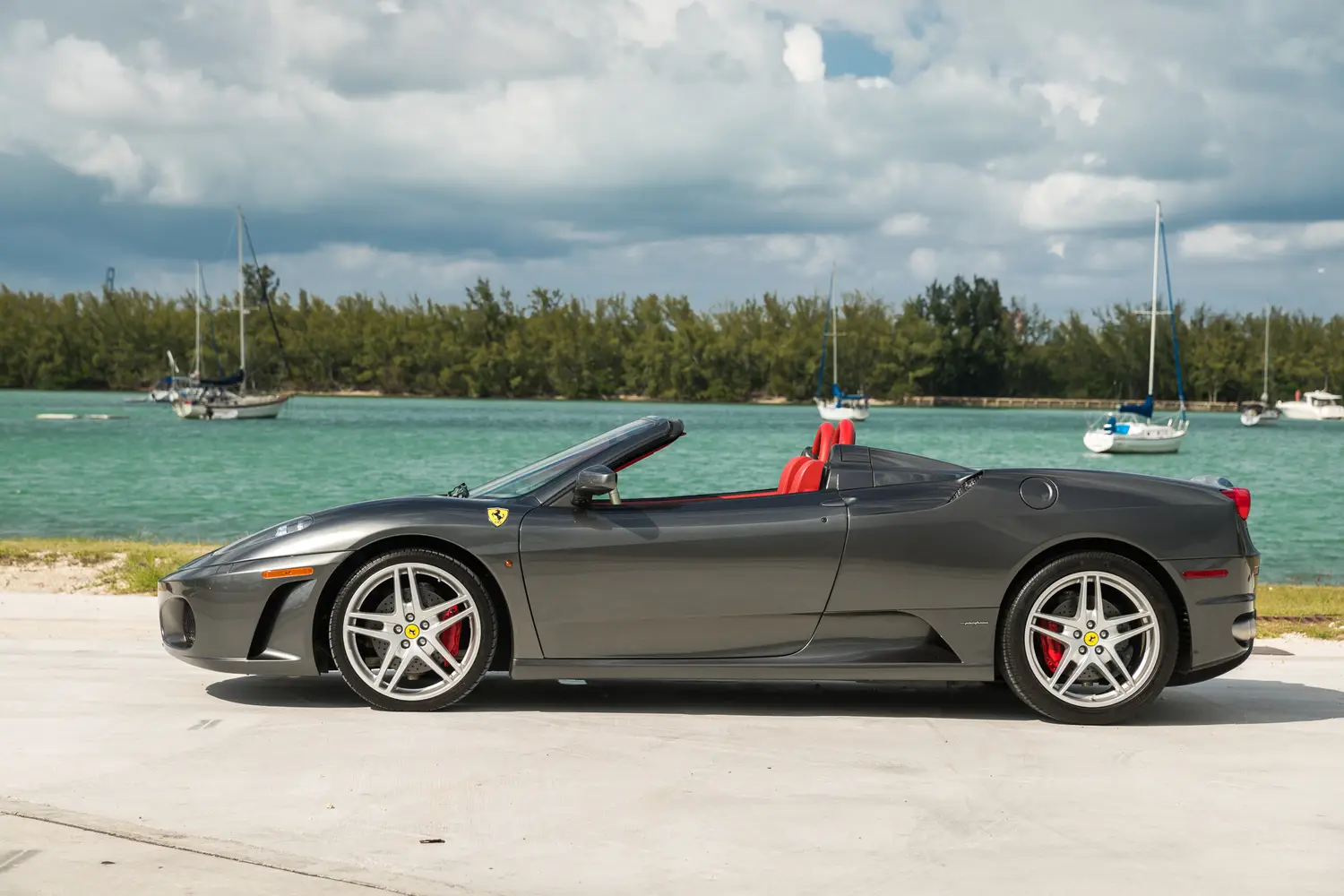





















No items found.





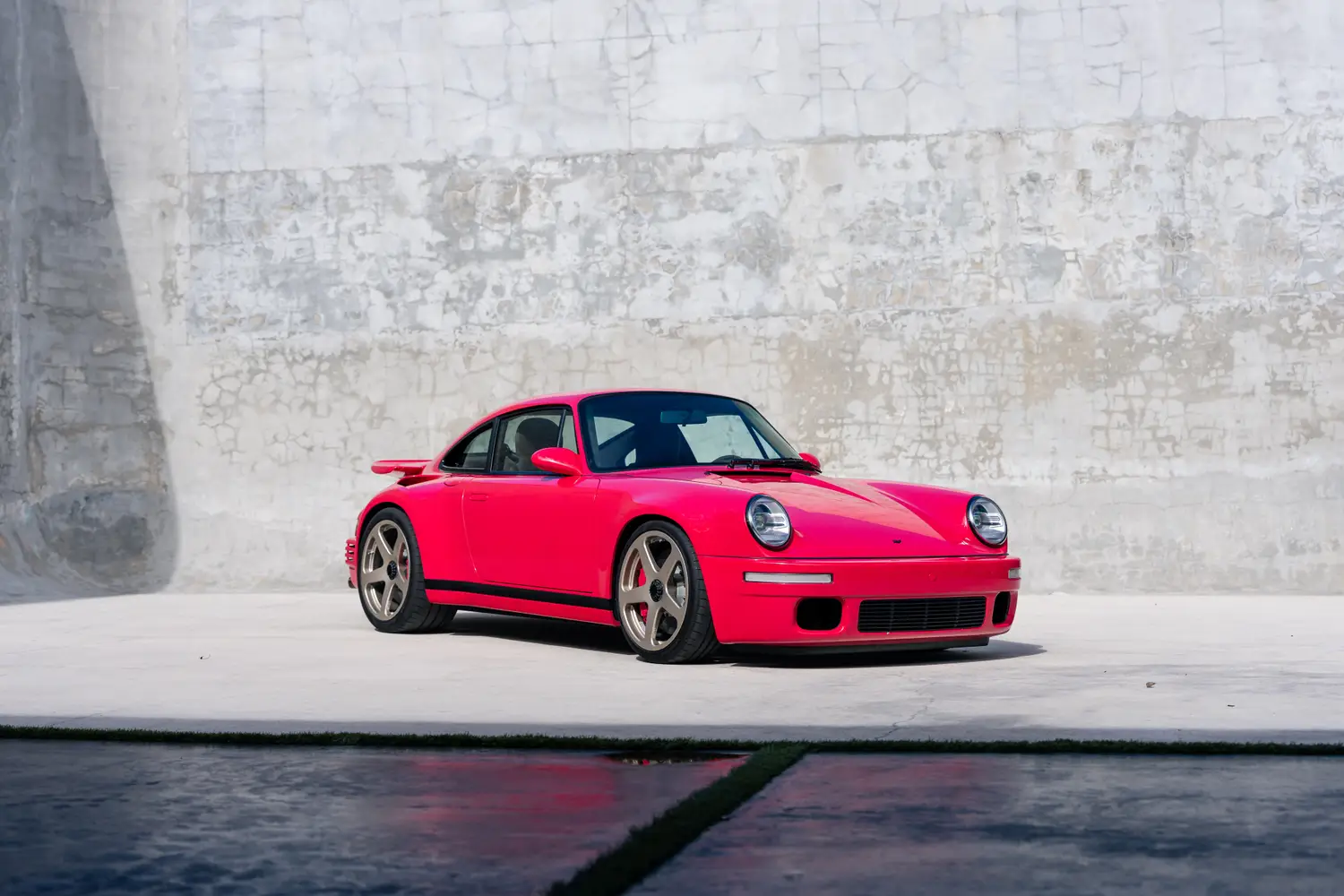

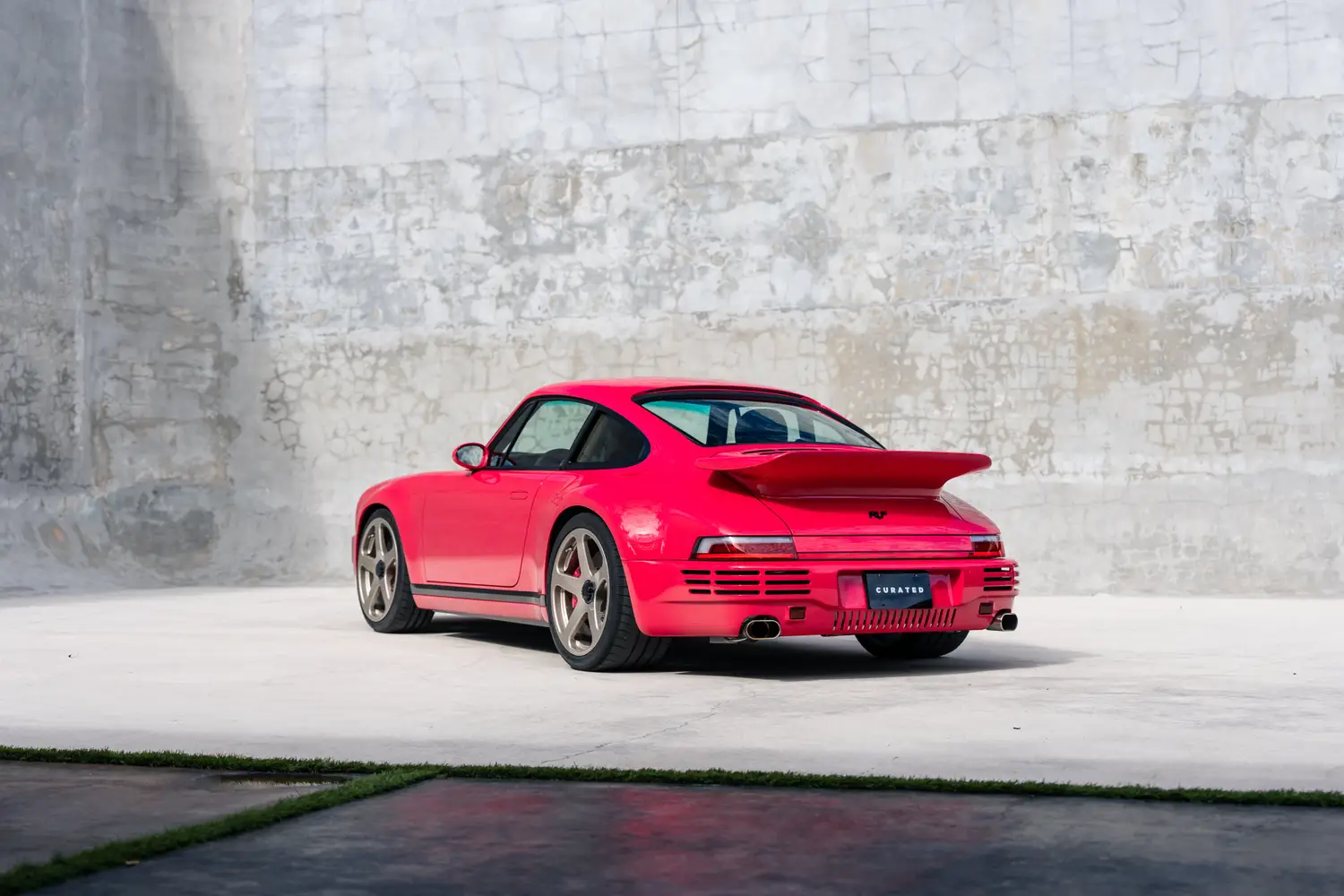
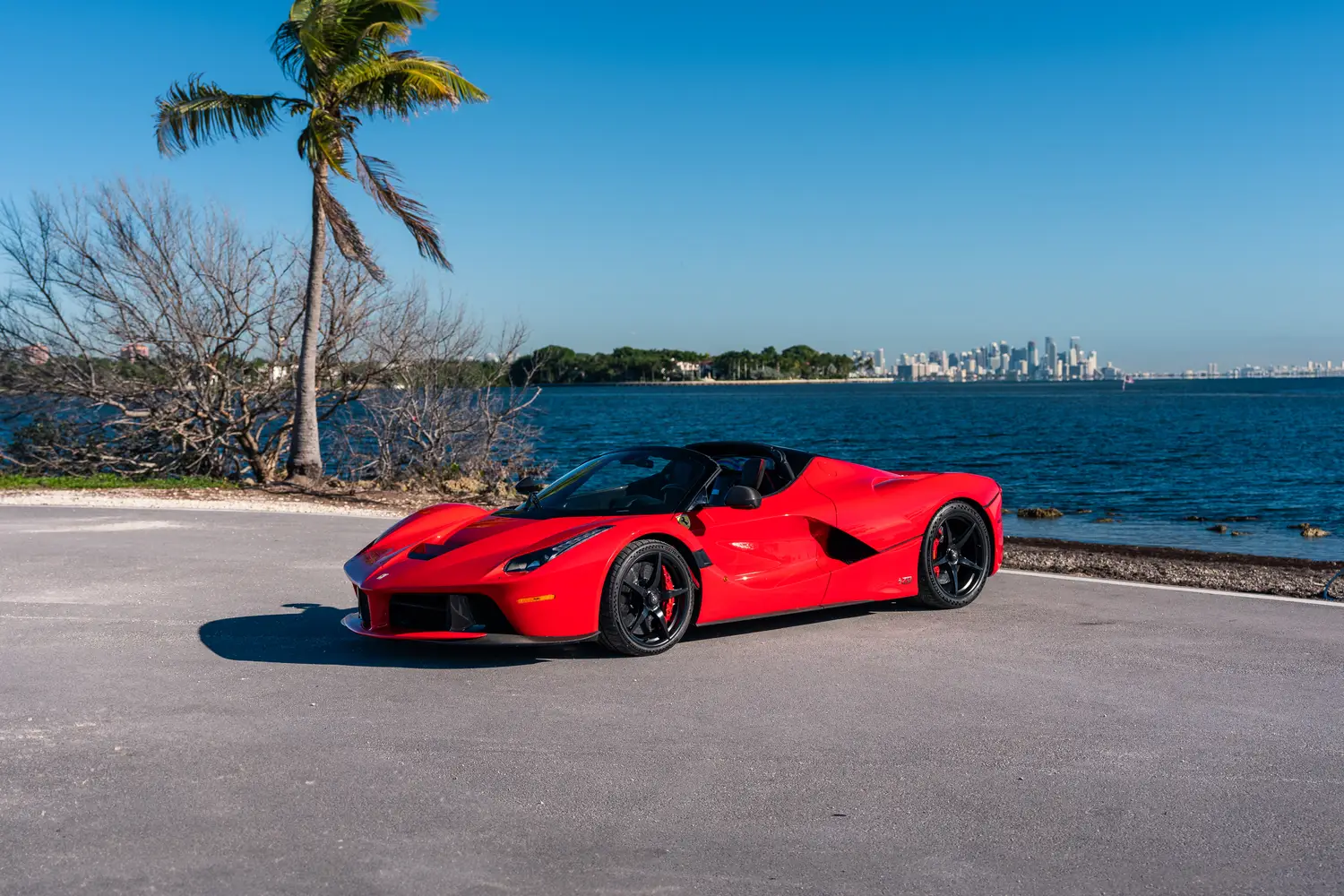
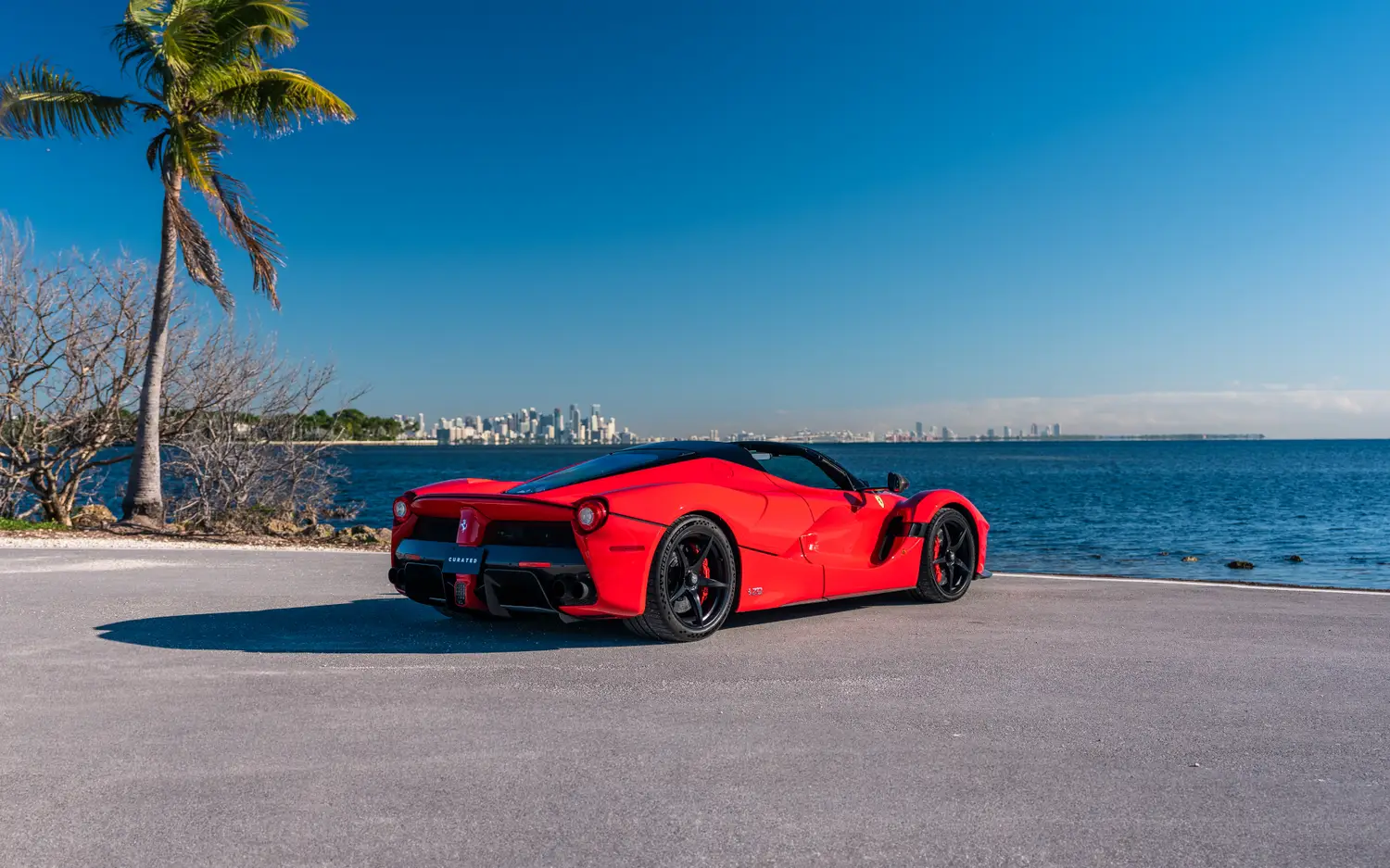


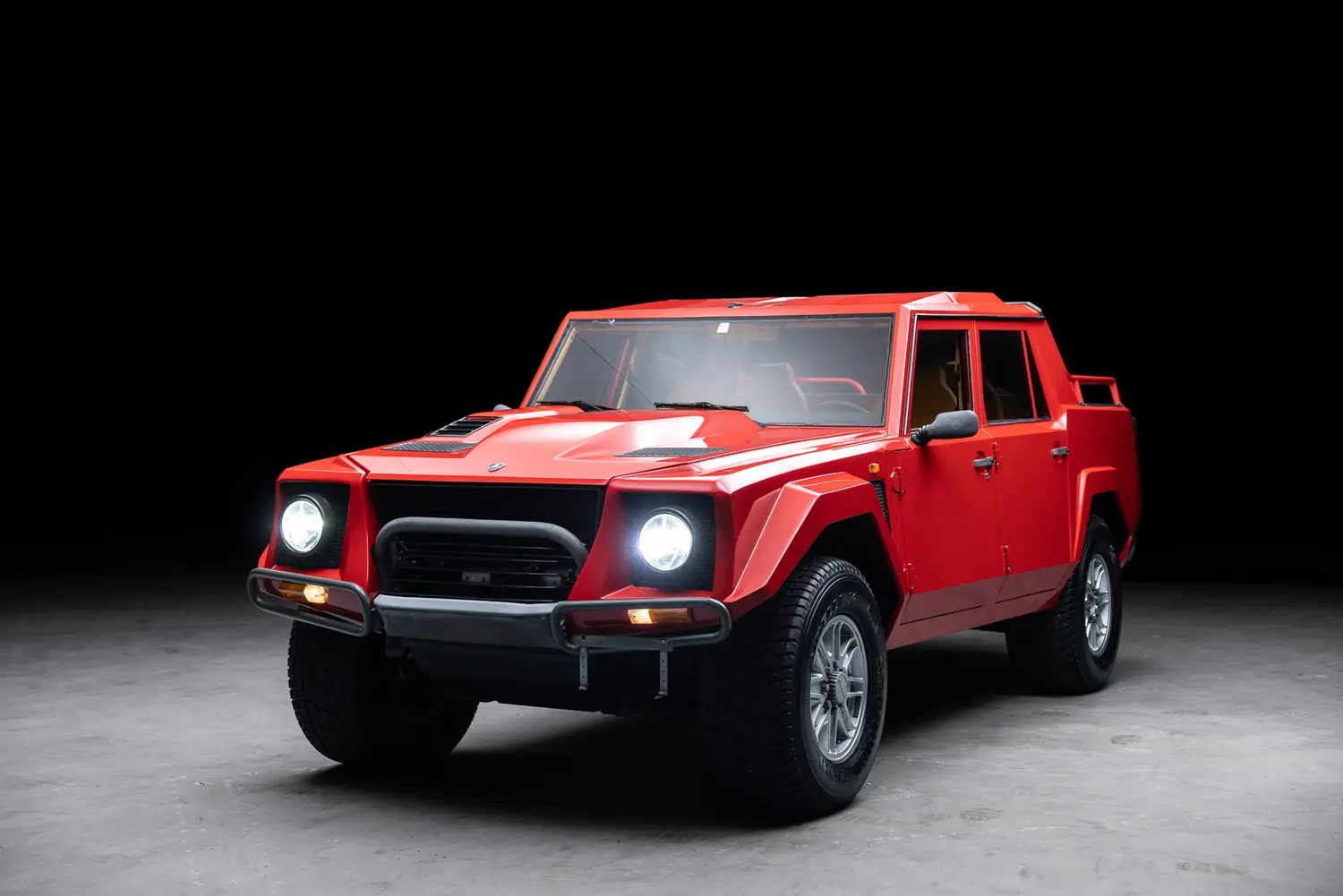












.webp)
